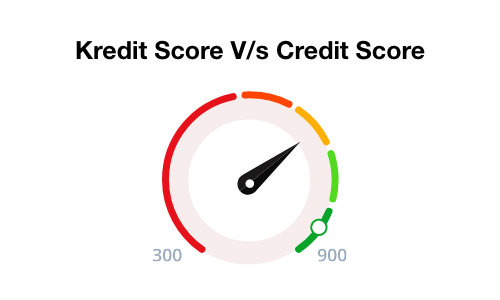What You Should Know About Hard Inquiry
When you request a new type of credit like a loan or credit card, a "hard pull" or "hard inquiry" takes place. It indicates that a lender has asked to review your credit file in order to assess the risk you represent to lenders.
The presence of multiple hard inquiries on your credit report can lower your credit score. For this reason, it is crucial to comprehend when hard inquiries are made, how they affect you, why it is best to limit them as much as possible, and more.
Here are some important facts regarding hard inquiries.
What Are Hard Inquiries on Your Credit Report?
Every time you apply for credit from a bank or credit card company, they will ask you to review your credit history. Before requesting new credit, you can review your credit report to get a sense of what the lender would see. Lenders consider your previous and present financial behaviour when deciding whether to deal with you - this includes payment history, credit card and loan amounts, and more.
For instance, if you repeatedly miss bill payments, your lender may assume that you will do so again in the future. You can end up having your loan application rejected or paying a higher interest rate as a result.
The creditor must seek your credit report from the credit agencies in order to obtain the information it requires, which leads to a hard inquiry. Your credit report will then reflect that query.
A soft inquiry, on the other hand, happens when you do a credit check on yourself or when a business wants to pre approve you for a credit offer but you have not yet completed a formal application. Note that your credit score is not affected by soft queries.
What Leads to Hard Inquiry on Your Credit Card?
A hard inquiry will appear on your credit record if you -
- Requested a new loan, like a personal loan, vehicle loan, education loan, home loan, and so on
- Requested a new credit card in the last two years
- Registered for a loan or balance transfer card
- Filed an application for a business credit card and requested an increase in credit limit
How Do Hard Inquiries Affect Your Credit Score?
al etihad credit bureau (AECB) only takes into account queries from the previous 12 months for determining your AECB credit score, even though hard inquiries remain on your credit record for more than 2 years.
To what extent a hard inquiry will affect your credit score depends in large part on your credit history. Any new hard credit check on your credit report can result in very little, if any, harm to your credit rating if you have a strong credit history and score before requesting new credit.
Hard inquiries have been observed to significantly lower credit ratings for those with a recent credit history or few credit accounts. A hard inquiry may have a far greater negative impact on your credit score if you are just beginning to build credit than it would if you already have a long payment history. However, it does not imply that you should not seek credit. It is acceptable to have a few inquiries every now and then because it demonstrates that you are working to establish credit, but you should be careful not to apply for too many loans at once.
How Long Does a Hard Inquiry Last?
Your credit report will reflect a hard inquiry for two years. Financial institutions can see all of the inquiries made throughout that duration, but they only have a short-term impact on your credit score - no more than a year.
As a result, your credit score may initially decrease when you apply for a loan or credit card, for example. With time, the effect will lessen and your score will bounce back soon if you behave responsibly with your credit.
Apply for credit only when necessary to maintain a high score. In order to maintain your credit rating as good as possible, experts advise avoiding requests for other new credit if you intend to apply for a major new credit product, such as a mortgage, in the coming months.
Difference Between Hard and Soft Inquiries
There are several differences between soft and hard inquiries. These differences are discussed in detail below -
|
Basis |
Soft Inquiry |
Hard Inquiry |
|---|---|---|
|
Meaning |
A soft inquiry is a routine process where you or any third party (usually employer, potential lender or existing lender) pulls out your credit history or information about your current debts. |
Hard credit checks are conducted when you apply for personal loans, auto loans, home loans, or any other credit. It is conducted by financial institutions to pull out a detailed report on your creditworthiness. |
|
Impact on Credit Score |
Does not impact your credit score |
If a bank or a lending institution conducts a hard credit pull, it can tremendously affect your credit score. |
|
Who Can Perform the Inquiry? |
Anyone can perform a soft inquiry - your approval is not necessary |
This kind of inquiry is often performed by lenders or financial institutions when you apply for a loan. |
|
When Is It Performed? |
A soft inquiry can be done for activities like -
|
A hard credit check can be done for the following activities -
|
How to Reduce the Number of Hard Inquiries?
Hard inquiries can temporarily lower your credit scores, but they are not necessarily a bad thing. It is, however, preferable to learn how to reduce the number of hard queries on your credit report. In order to reduce the number of hard inquiries on your credit report, keep the following in mind -
- Avoid applying for too many applications for credit cards in a short period of time. Think about requesting a different credit card every 6 months.
- Only request a credit card if it will meet your needs financially. Avoid making too many difficult questions on cards you do not require.
- Before submitting an application for new credit, make sure you are eligible by checking your credit score and report.
- To determine your likelihood of being approved for credit without hurting your credit score, think about requesting a prequalification.
Key Takeaways
- Whenever you apply for a new credit product, such as a credit card or loan, a "hard pull" or "hard inquiry" is made. It means a lender has requested to look into your credit report in order to evaluate the risk you pose to lenders.
- They will ask you to evaluate your credit history each time you seek for credit from a bank or credit card business. You can check your credit report before applying for new credit to get an idea of what the lender might see. When considering whether to work with you, lenders take into account your past and present financial behaviour, including payment history, credit card and loan amounts, and payment history.
- Even while hard inquiries stay on your credit report for more than 2 years, Al Etihad Credit Bureau (AECB) only considers inquiries from the past 12 months when calculating your credit score. Your credit history has a significant impact on how a hard inquiry will influence your credit score.
- For individuals with recent credit histories or limited credit accounts, hard queries have been seen to dramatically reduce credit ratings. So if you are just starting to build credit, a hard inquiry may have a far higher negative effect on your credit score than it would if you already possess a long credit history.
| Credit Score for different types of Loan | |
|---|---|
| Credit Score for Personal Loan | Credit Score for House Loan |

More From Credit Score
- Recent Articles
- Popular Articles












